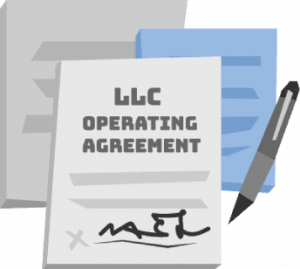How to Start an LLC in Idaho
An Idaho limited liability company is legally formed when a new business files an Idaho Certificate of Organization with the Secretary of State and pays the filing fee ($100). Actually getting the business up and running requires a bit more. Below, we go over the eight steps to starting an LLC in Idaho.

1. Name Your LLC
You may already have a business name in mind, but does it follow the Idaho state rules for naming an LLC? To be approved, your LLC name:
- Must include either the words limited liability company, or an abbreviation like LLC or L.L.C.
- Needs to be unique among registered businesses in Idaho
- Can’t use any words or abbreviations that suggest it’s a different entity type or government agency (for example: Inc or State Department)
Note: Even if your desired name is available in Idaho, it may be federally trademarked, which means you could get sued if you use the name. Perform a trademark clearance search just to make sure your bases are covered.

2. Claim Your Domain Name
Your domain name opens up a world of options. From launching a website, building social media profiles, setting up email communications, and printing business cards, there’s a whole lot of new-business stuff you can’t do until you choose a domain name.
When you choose your business domain, consider:
-
Does your domain work well with your business name?
-
Is your domain easy to remember and spell?
-
Is your domain available wherever else you want it, like social platforms, trademarks, or business name registries?
Once you have a domain you’re happy with, it’s time to claim it. When you order your domain through Northwest, we’ll also set you up with a website, custom built by our business website experts, hosted and secured through us. You can test drive that website completely free for 90 days.

3. File Idaho LLC Certificate of Organization
The Idaho Certificate of Organization is the document you’ll submit to the Idaho Secretary of State to form your LLC. You can file this document online, by mail, or in person. The filing fee is $100. Keep in mind that Idaho charges a $20 processing fee for paper filings.
Note: All of the information on the Certificate of Organization will be on the public record.
Here’s the information you’ll need to complete the Certificate of Organization:
Your business name must be legally compliant with all of Idaho’s business naming laws. Your name can’t be the same as another business registered with with Idaho’s Secretary of State, and it must include an identifier like limited liability company or LLC.
Your principal office is your official Idaho business address.
A registered agent is a person or entity that is authorized to accept lawsuits and other important legal mail on behalf of a business. Your registered agent could be you, another Idaho resident, or a registered agent company. All LLCs are required to have a registered agent in Idaho. Your Idaho registered agent must:
- Have a physical address (no P.O. Boxes or virtual offices) in Idaho, which will go on the public record
- Be available during regular business hours to accept service of process
While you can save money by serving as your own registered agent, there are some privacy risks to doing that. Registered agent names and addresses are public information. If you appoint yourself as the registered agent of your LLC, your address will be easy to find on Idaho’s Secretary of State’s business database.
You can put your physical office address, or you can put our address if we’re your registered agent.
This is just a fancy term for someone in your LLC who has decision-making power—either a member or a manager. Their name and address goes here.
This is the address where you’ll receive regular mail. This can be a P.O. Box if you wish.
Your LLC’s organizer is the person who is signing and submitting the Certificate of Organization. This doesn’t have to be someone within your LLC. However, your organizer’s information will become public record. If you hire Northwest to form your business, we’ll be your organizer and list our information here.
The information you list here is how the Secretary of State’s office will reach you if there’s a problem with your filing. This doesn’t have to be the contact information of anyone in your LLC.
How Do You File the Idaho Certificate of Organization?
You can file your Certificate of Organization online, by mail, or in person. You’ll save $20 by filing online, but you’ll need to create an SOSBiz account.
Mail and in person:
Office of the Secretary of State
450 N 4th Street
P.O. Box 83720
Boise, ID 83720-0080
Online:
Idaho SOSBiz

4. Adopt an Operating Agreement
While not required by law in Idaho, most businesses choose to adopt an operating agreement because it outlines clear rules and regulations for how your LLC will operate. Operating agreements generally address issues like voting rights, ownership percentage, distributing profits and losses, and even dissolving the business.
Failure to adopt an operating agreement could leave your personal assets vulnerable in the event the business gets sued or goes bankrupt.
Tip: Our attorneys drew up an Idaho LLC operating agreement for you to use.

5. Get an EIN
An EIN (Employer Identification Number) acts as your company’s Social Security number (SSN). You’ll put your EIN on tax filings so that the IRS can identify your business. You can apply for an EIN from the IRS for free, either online or by mail.
The fastest way to get an EIN is to apply on the IRS website. However, if you do not have an SSN, you’ll need to mail in a paper form.
Tip: You can add EIN service when you hire us to form your LLC.

6. Get a Business Bank Account
It’s important to set up a business bank account once you’ve formed your LLC. Why? LLCs have limited liability protection, which means the state considers them to be separate legal entities (with separate liability) from the people who own them. But the only way to maintain that limited liability is by keeping personal and business finances separate.
To open a business bank account in Idaho, here’s what you need to take to the bank:
- LLC Certificate of Organization (a copy is fine)
- LLC operating agreement
- EIN
- LLC Resolution to Open a Bank Account (unless it is a single-member LLC)
Tip: If your LLC has more than one member, use our free LLC Resolution to Open a Bank Account.

7. File Idaho Annual Report
Idaho LLCs are required to file a state report every year. This annual report basically ensures that your business information is up to date and the state knows who to contact if they need to get in touch with you.
Your annual report is due during the anniversary month of when your business was formed. For example, if you formed your LLC on March 12, your annual report would be due by March 31 the following year.
Tip: Don’t feel like dealing with your Idaho Annual Report? We can file it for you.

8. Get Ready for Business
Now that you’re legally ready to start making sales, it’s time to get physically ready. Depending on what your business does, this may include:
-
Staffing your business
-
Organizing your merchandise or products
-
Getting business insurance
Regardless of what your business does, you’ll need to get your name out to potential customers and have a way for them to get in touch with you. A good business website and business email addresses give clients a way to reach you directly. But vendors, employees, and legal agencies need a bit more formality than your website contact page.
That’s why many business owners get an Idaho virtual office. Virtual offices let you organize your communication professionally no matter where you’re working from while protecting your private information.
Our Idaho Virtual Office includes a unique address you can put on anything from your business cards to your invoices, a phone line with a local area code, and your choice of same-day digital scans and weekly physical mail forwarding.
Let’s Set up Your Idaho LLC?






